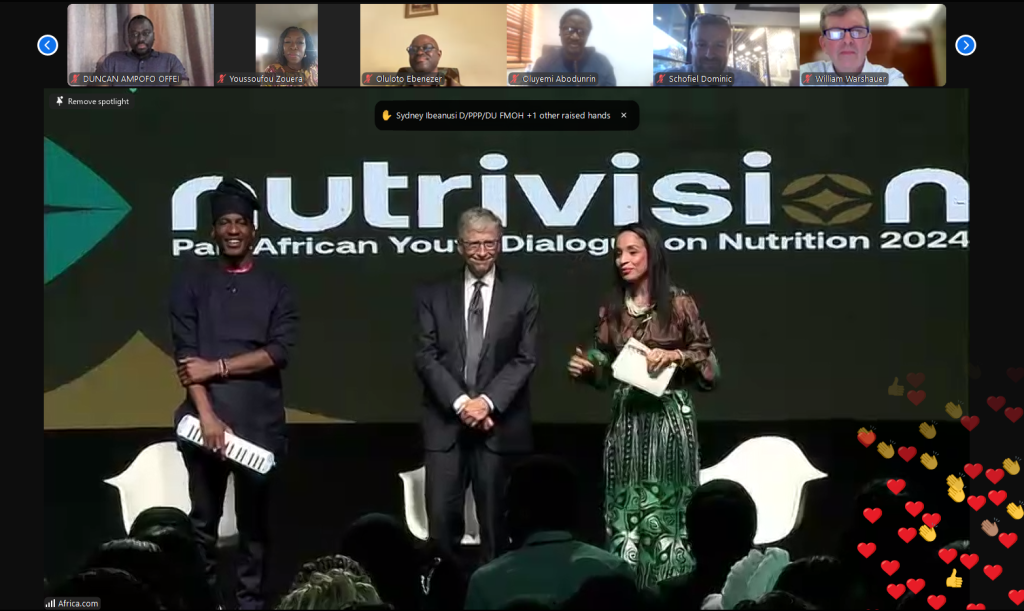Bill Gates, co-chair of the Bill and Melinda Gates Foundation, has pointed out that tax collection in Nigeria is low, which poses a significant challenge to adequately funding essential sectors like health and education.
Speaking at Nutrivision 2024, a Pan-African youth dialogue on nutrition in Abuja on Tuesday, Gates addressed the importance of financing mechanisms for large-scale public health interventions.
He emphasised that for citizens to trust the government’s ability to deliver quality healthcare, there must be a commitment to effectively managing health programme funds.
Bill Gates emphasised the importance of improving Nigeria’s tax collection in order to finance government activities, particularly in essential sectors such as primary healthcare. He highlighted that strengthening public trust in these initiatives will ultimately encourage citizens to support higher funding as the nation achieves greater financial autonomy.
“Over time, there are plans for Nigeria to fund the government more than it does today. The actual tax collection in Nigeria is actually pretty low,” he said.
“If citizens want the education and the health things, as they develop the confidence that these programmes can be very well run, and our foundation is involved with a lot of the exemplars that are showing the way in terms of making sure the money is spent really well, running a very efficient primary health care system where the employees are doing great work, the centres are where they should be, you don’t have underloaded centres or overloaded centres,” he added.

“It’s exciting that we are driving the credibility of those health programmes and so that the citizens will feel like primary health care is amongst the priorities that should be very funded as you get some fiscal flexibility,” he said.
In addition to discussing tax collection, Gates expressed optimism about Nigeria’s potential to significantly boost its agricultural output. He stated that with the right support, such as improved credit facilities, comprehensive soil surveys, and effective advisory services for farmers, Nigeria could more than double its food production.
This increase could transform Nigeria from a net food importer into a major food exporter, which would have a positive impact on the nation’s economy and address issues of equity and nutrition across the country.
“Nigeria today is a net food importer and yet, given the geography, if the right credit facilities and advice to farmers, soil surveys, things are available, there is the opportunity for Nigeria to more than double its food output, which would be pretty transformative, because it would mean that you would be a net food exporter,” Gates said.
“Instead of having to use very scarce dollars, particularly the current exchange rate to go buy food, you are actually bringing dollars in.”
Gates stated that improving agricultural productivity, especially in rural and northern regions, is crucial for raising incomes and driving economic growth.
Additionally, Gates pointed out that embracing digital technologies and utilising high-yielding seed varieties could spark an agricultural “miracle” in Nigeria, leading to far-reaching gains for the nation as a whole.


